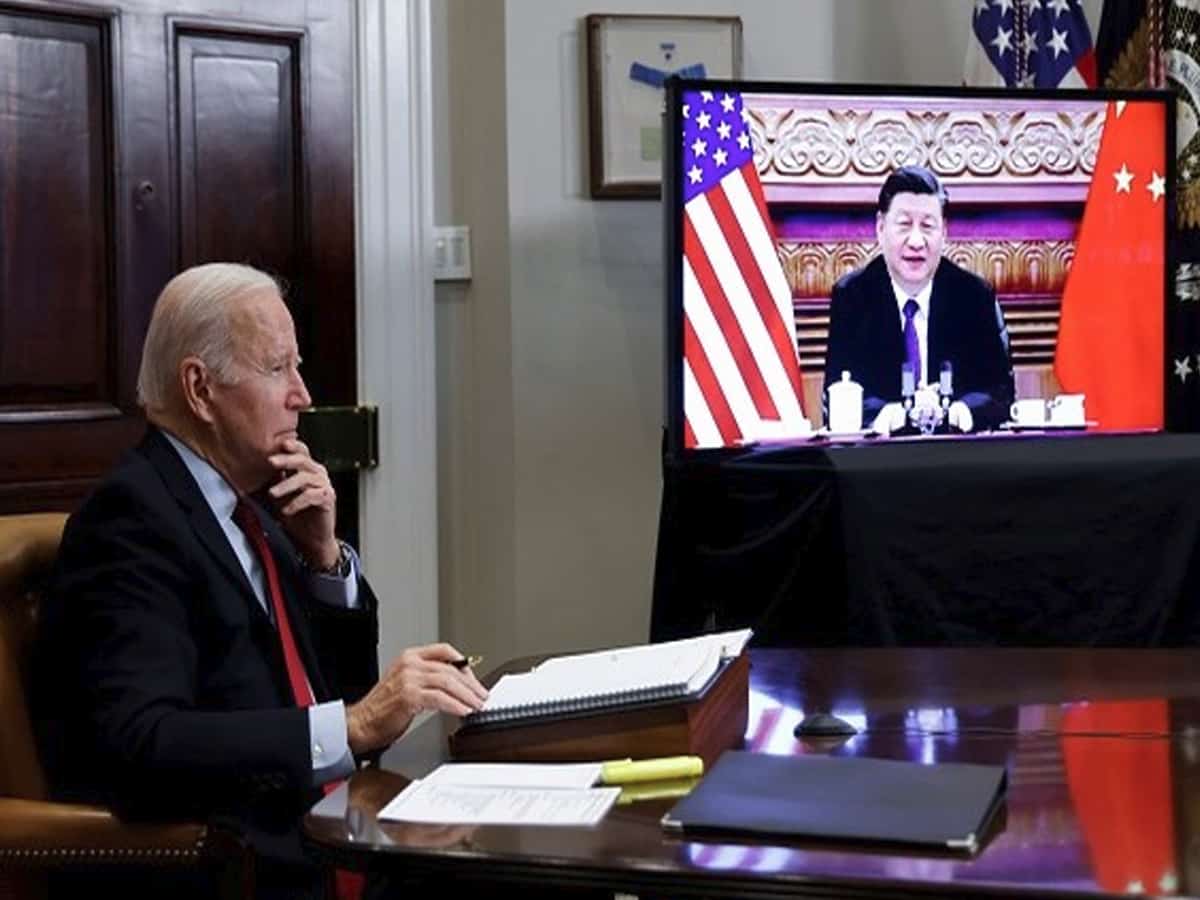Washington: Underscoring his country’s commitment to the “one China” policy, US President Joe Biden on Tuesday strongly opposed unilateral efforts to change the status quo or undermine peace and stability across the Taiwan Strait.
Reiterating the importance of freedom of navigation, Biden stressed that the US will continue to stand up for its interests and values to ensure the rules of the road for the 21st century advance an international system that is free, open, and fair.
“On Taiwan, President Biden underscored that the United States remains committed to the ‘one China’ policy, guided by the Taiwan Relations Act, the three Joint Communiques, and the Six Assurances, and that the United States strongly opposes unilateral efforts to change the status quo or undermine peace and stability across the Taiwan Strait,” the White House said in a statement.
This meeting was held amid deteriorating relations between Beijing and Washington on several issues including human rights, trade and the growing arms race. Recently, Beijing has increased its military incursions in Taiwan and continues to claim sovereignty over the democratic island.
During his meeting with the Chinese President, Biden also underscored the importance of managing strategic risks. “He noted the need for common-sense guardrails to ensure that competition does not veer into conflict and to keep lines of communication open. He raised specific transnational challenges where our interests intersect, such as health security.”
Biden also discussed the importance of a free and open Indo-Pacific and communicated the continued determination of the United States to uphold our commitments in the region.
The two leaders also touched upon topics like the existential nature of the climate crisis and the important role that the United States and China play. They also exchanged views on key regional challenges, including North Korea, Afghanistan, and Iran.
This is the first meeting between the two leaders since Biden has assumed office. The highly-anticipated meeting between the leaders of two global powerhouses lasted for over three hours.

